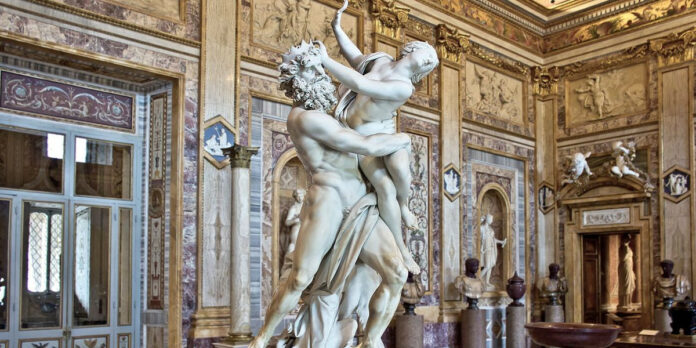A Young Genius Sculpts Mythology
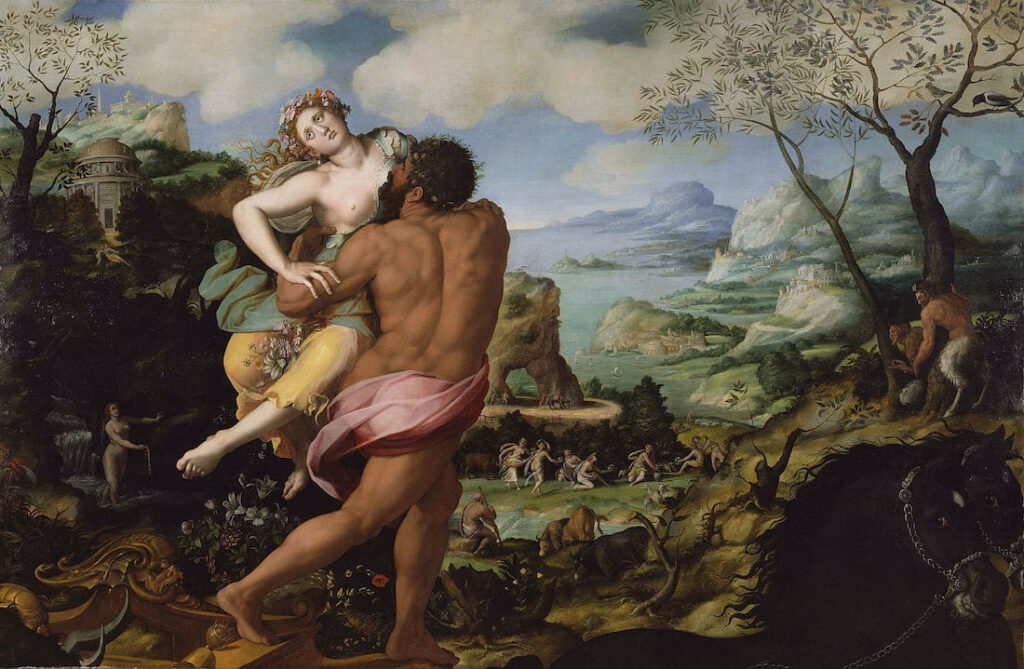
In the early 1620s, Rome witnessed the emergence of an extraordinary talent. Gian Lorenzo Bernini, a mere 23 years old, was about to create a work that would cement his place in art history. His subject: the dramatic abduction of Proserpina by Pluto, god of the underworld.
Breathing Life into Marble
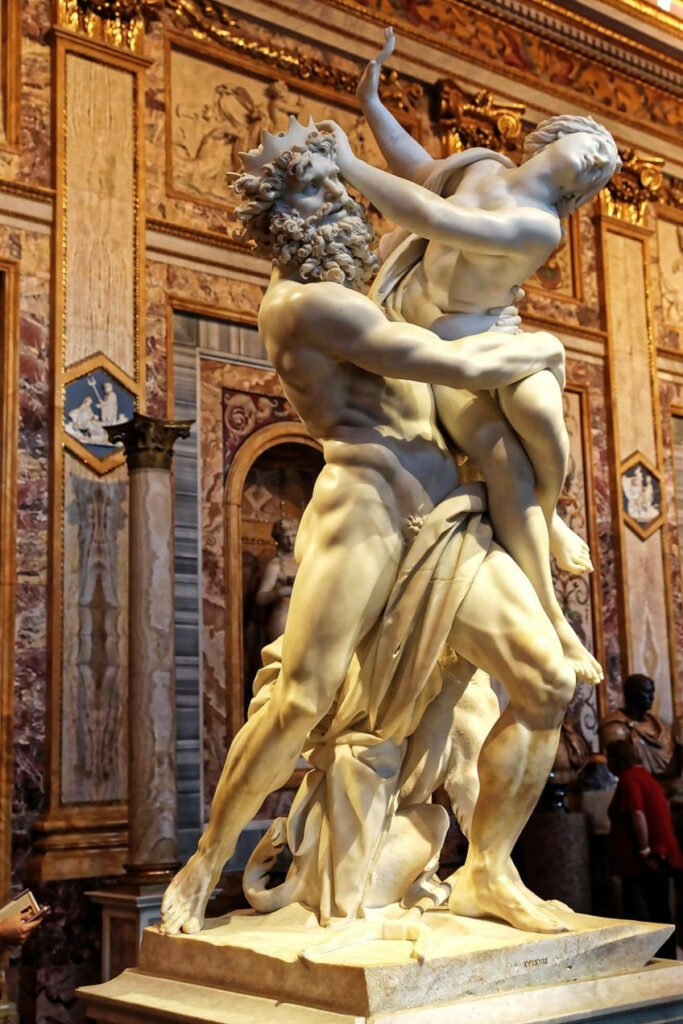
Bernini’s hands worked tirelessly, coaxing the cold marble into a scene of startling vitality. As the sculpture took shape, viewers could almost hear Proserpina’s cries and feel Pluto’s unyielding grip. The young artist’s attention to detail was remarkable – from the taut muscles of Pluto’s arms to the soft flesh of Proserpina yielding beneath his fingers.
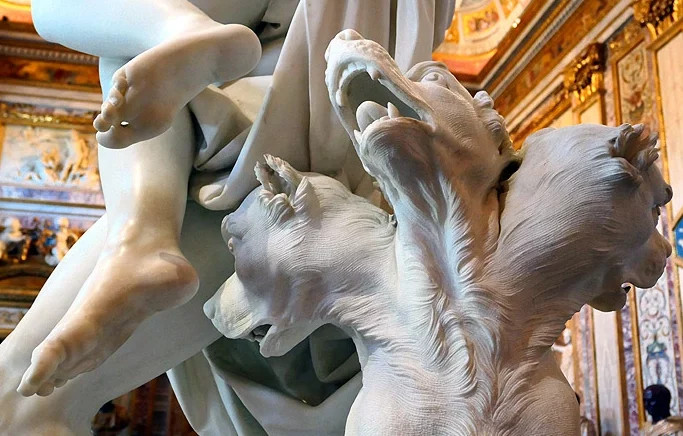
A Story Carved in Stone

The mythological tale unfolded before the eyes of onlookers. Proserpina, daughter of the harvest goddess Ceres, struggles against her captor. Pluto, driven by desire, carries her off to his underground realm. At their feet, the three-headed dog Cerberus stands guard, marking the boundary between the world above and the underworld below.
Emotion Set in Stone
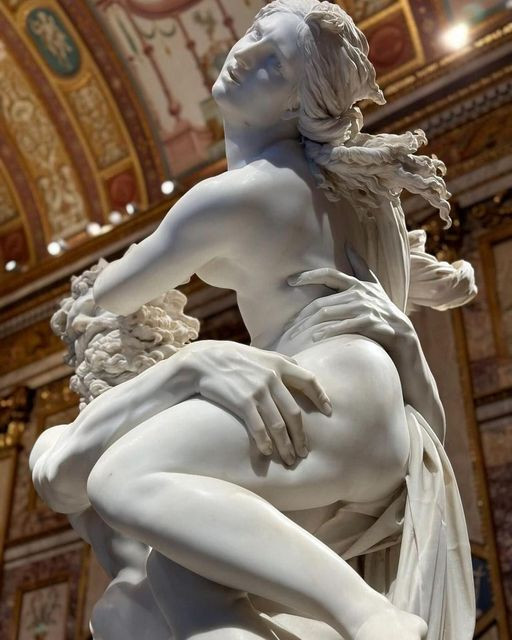
Bernini’s genius lay not just in his technical skill, but in his ability to capture raw emotion. The fear and desperation in Proserpina’s face, the determination in Pluto’s stance – these spoke volumes, bringing the ancient myth to vivid life.
The Birth of a Baroque Masterpiece

“The Rape of Proserpina” exemplified the Baroque style, with its dynamic composition and intense emotional charge. Bernini had created more than a sculpture; he had crafted a frozen moment of high drama that would influence artists for generations to come.
A Legacy Endures
Today, visitors to Rome’s Galleria Borghese still stand in awe before Bernini’s creation. The young prodigy’s work continues to captivate, a testament to the enduring power of artistic genius.
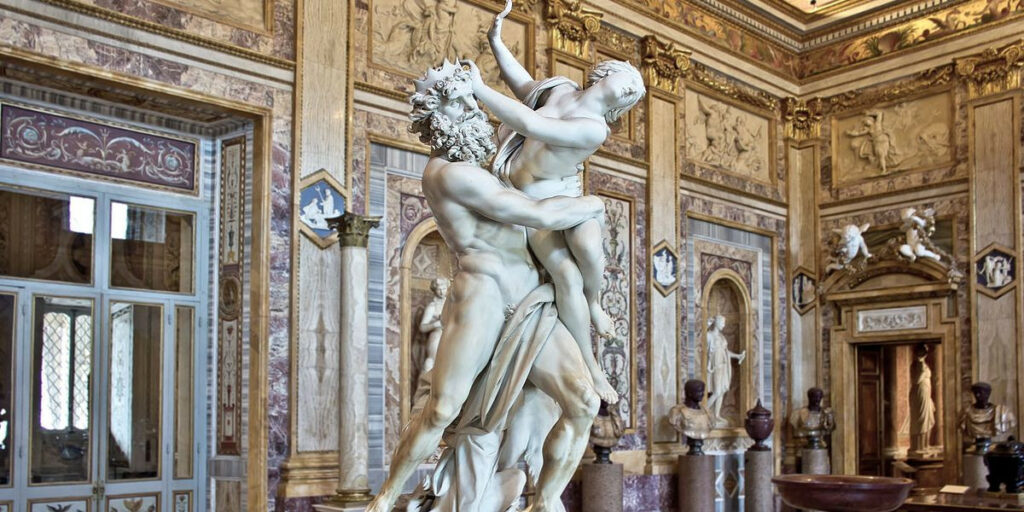
As we marvel at “The Rape of Proserpina,” we’re reminded that true talent knows no age. At just 23, Bernini had already begun to reshape the world of art, one masterpiece at a time.
